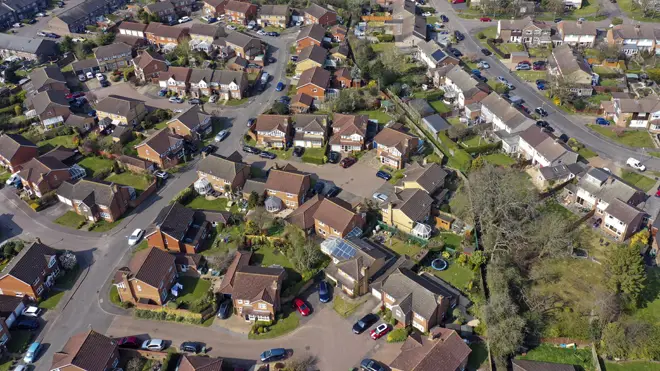
Paul Brand 10am - 12pm
4 February 2021, 11:10 | Updated: 24 February 2021, 11:49

Mark Bogard, Chief Executive of The Family Building Society, explains how to make the most of the stamp duty holiday - and what some of the pitfalls are.
One of the policy successes of the pandemic has been the Stamp Duty holiday.
It has meant that the usual, basic Stamp Duty on property transactions up to £500,000 is not payable up to 31st March of this year. So that saves buyers up to £15,000 of tax. The price of a car.
Stamp duty gums up the housing market. It is the easiest tax to avoid and can encourage people to stay put.
So not surprisingly, the holiday has resulted in a lot more people looking to buy than has been the case in recent years.
Lots of people are in the process of trying to get their move done by the deadline. As things stand, if you miss the deadline, you’ll have to pay the extra Stamp Duty.
If you haven’t got your prospective purchase on the go already, you may be too late to get everything done in time, especially if you need a mortgage.
But there are suggestions that the holiday could be extended until the end of June as the Covid pandemic continues to affect the economy.

No stamp duty on houses valued up to £500,000
• Stamp duty - make sure you consider the impact if you do miss the stamp duty deadline. Do you have sufficient cash available to pay the stamp duty if it comes to it or, if you haven’t signed a contract yet, will you pull out? Most people tell us that they would try and find a way because they have fallen in love with a property.
Meanwhile write to your MP. Ask them to extend the stamp duty holiday, or at least taper it off, so that if you’ve had an offer accepted on a property, in writing, before the deadline, you can complete after and still get the advantage of the holiday
• Searches – your solicitor or conveyancer does these with the local authority to check certain aspects about the property. Whilst you are waiting for your mortgage offer, talk to them about when to request searches, as some local councils are currently taking significantly longer to process these.
• Indemnity insurance - some mortgage lenders are willing to accept search insurance instead of waiting for the searches. You need to understand with your conveyancer if you’d be comfortable to continue without the search outcomes?
• Your mortgage - make sure that you provide all the information immediately that the lender will need to make the application process as straightforward and quick as possible. If there’s anything that’s likely to require more explanation, make sure it’s available quickly. Try and get the valuation of the property instructed as early as possible – this can be another cause of delay.
.• Estate agents - once you have the mortgage offer then it’s down to the conveyancing and the linked transactions if you are part of a chain. The longer the chain, the more chance of delays or problems.
There are reports that Chancellor Rishi Sunak could extend the stamp duty holiday until the end of June in his March 3 budget.
However, a Treasury spokesman said they could not speculate on tax ahead of fiscal events.
Some have urged Mr Sunak to shift the deadline to later in the year, whereas Labour has branded the stamp duty extension as "another tax giveaway to second homeowners".
Bridget Phillipson, Labour's shadow chief secretary to the Treasury, described the reported plans for a stamp duty extension as "another tax giveaway to second homeowners".
"These are the wrong priorities in the middle of the worst economic crisis of any major economy," she said.
"The chancellor should be taking action to protect family finances and secure our economy, not hitting them with tax rises while cutting them for landlords."
A recent report by the right-leaning Centre for Policy Studies (CPS) said the tax break had seen house sales reach their highest level since before the 2007 financial crisis.
Data shows that after an initial decline in transactions between April and June 2020, the number of sales increased from 132,090 in the second quarter to 225,870 in the third quarter and 316,300 by the end of quarter four.
The think tank's research shows that stamp duty revenues rose by 27 per cent in Q3 compared to Q2 - from £1.1bn to £1.35bn - and suggests they will rise again in Q4 given the continued increase in transactions.
It is calling on the government to either permanently increase the threshold on primary residences to £500,000 - at a cost of £3 billion - or abolish it altogether.
Jethro Elsden, CPS data analyst and the report's author, said scrapping the holiday would be a "sledgehammer blow to the housing market".